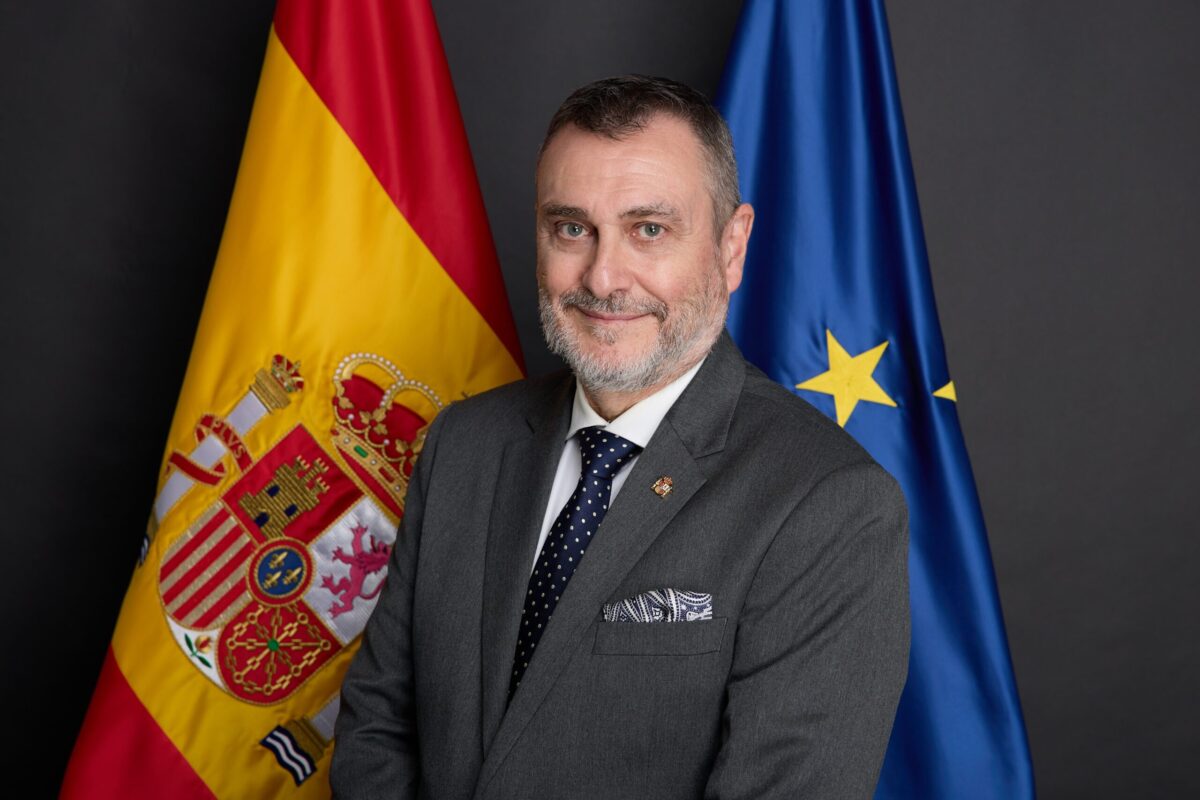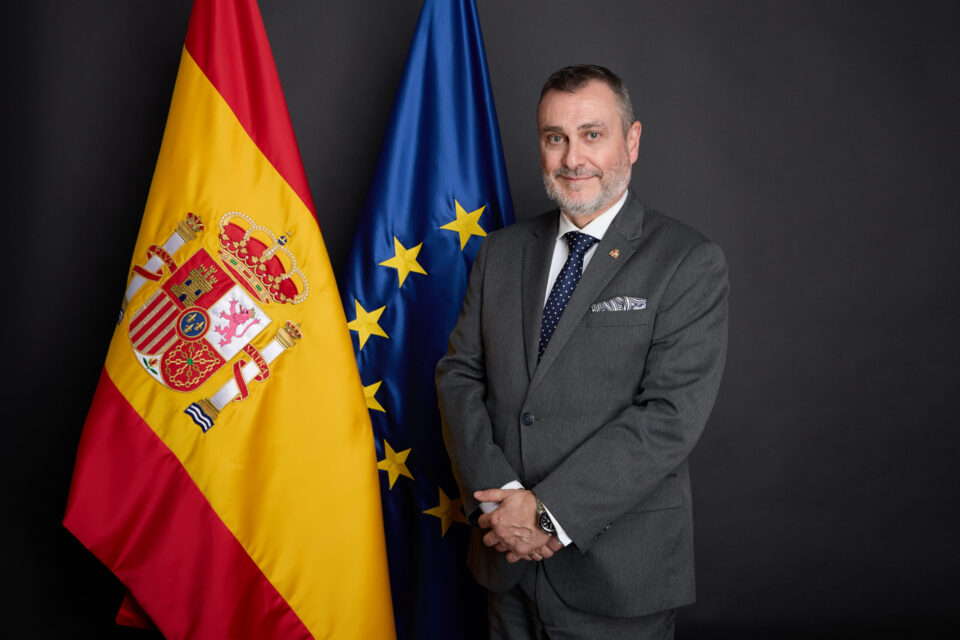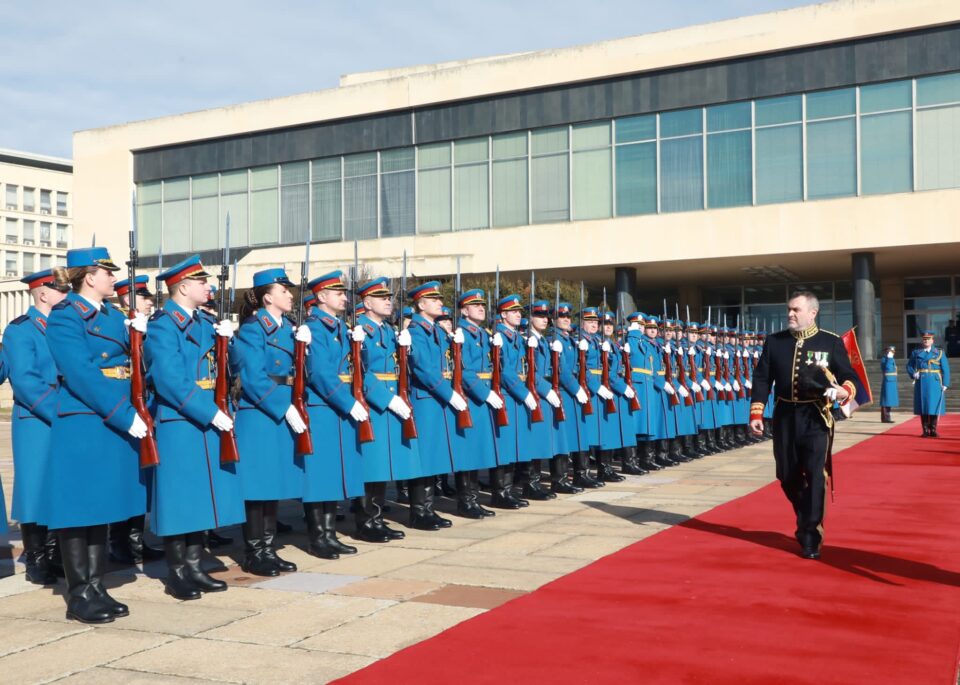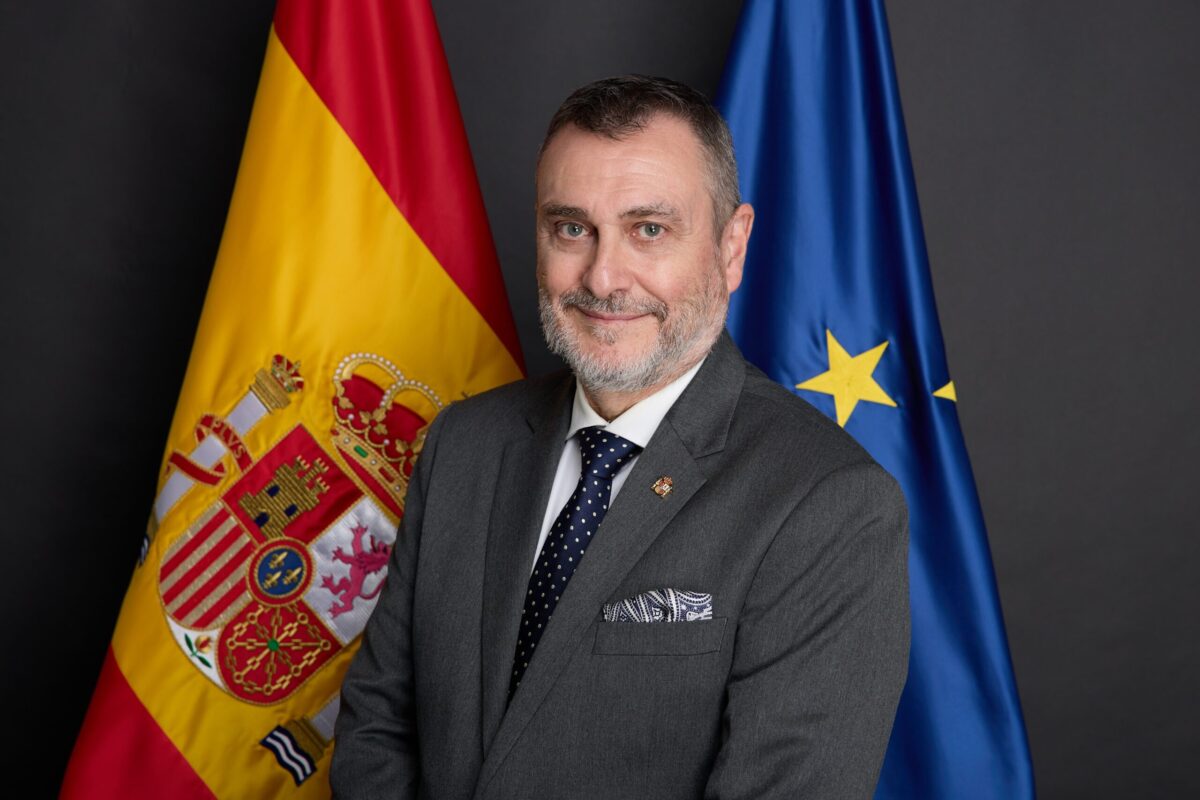One cannot know or understand the history of Europe in the 20th century if one does not know and understand the history of the Balkans and Serbia. A lawyer by profession and a seasoned diplomat by career, H.E. Juan José Sanz Aparicio, the new Ambassador of the Kingdom of Spain to Serbia brings to the table more than a decade of experience in delicate post-Brexit Gibraltar negotiations between Spain and the UK. His Andalusian spirit is already finding a welcome home in Belgrade, where Mr. Sanz Aparicio imbues himself with the buzz of the people, and with genuine interest in discovering why this part of the world holds keys to many a door of recent history.
A lawyer by profession and a seasoned diplomat by career, H.E. Juan José Sanz Aparicio, the new Ambassador of the Kingdom of Spain to Serbia brings to the table more than a decade of experience in delicate post-Brexit Gibraltar negotiations between Spain and the UK. His Andalusian spirit is already finding a welcome home in Belgrade, where Mr. Sanz Aparicio imbues himself with the buzz of the people, and with genuine interest in discovering why this part of the world holds keys to many a door of recent history.
What made you opt for Serbia as your post?
I had no doubt whatsoever when I saw that the post was available. I have to admit that I had never been to Belgrade or Serbia, before. However, for two years of my work in Madrid, my assignments were related to the Balkans. I then discovered this fascinating region, and in it a fascinating country, Serbia. I also realized that one cannot know or understand the history of Europe in the 20th century if one does not know and understand the history of the Balkans and Serbia. Then I heard stories from some of my friends both from within and outside the diplomatic corps who spoke wonders about the country and Belgrade. So, when I saw the post was vacant, I applied. It was the only post I applied for; I may add. Once the vacancies are announced, we may apply for up to five of them, and I only asked for Belgrade. So, luckily, the minister decided to nominate me, and I am very content and consider myself very lucky to be here.
There is a point of encounter between the Spanish and Serbian politics, which connects the two countries most closely. Do you believe that connection has given a sufficient boost to what seems to be a significant surge in the economic collaboration between Spain and Serbia?
Yes and no. We indeed have an extraordinary political relationship that only improved with the 2022 visit of President Vučić to Spain and the visit of Prime Minister Sanchez to Serbia. Spain supports Serbia in its defense of territorial integrity and sovereignty. However, our economic and cultural exchange, is, although good, still well below the level of our political relations. One of my main missions here is therefore going to be maintaining the level of political relations and even improving it, if possible, but most of all, I plan to do my best to improve the business collaboration by bringing Spanish investments and more Spanish companies to Serbia. For this, the 2027 Expo offers us a fantastic opportunity. In the area of culture, the Instituto Cervantes has been here for 20 years, and now we would like for our cultural presence to be noticed not only in Belgrade but also in other parts of the country. I have been here only for a couple of months, but I am fully aware that Spanish culture is very appealing to people in Serbia.
Spain supports Serbia in its defense of territorial integrity and its sovereignty
As you mentioned, you arrived very recently. What are your first impressions of Belgrade?
Very positive. I had read a lot about Serbia, and, as I said I spoke to many of my friends who were working and living here, but the reality has surpassed all my expectations. I found a very dynamic country, with a well-functioning economy and an intense political life which has its positive and negative aspects, like in all countries, and there is also a growing, flourishing civil society. I have heard a lot of people say that there has been, since 2020, a significant increase in the visibility of the role that the civil society wants to play. The Balkans and this region are fundamental geostrategic points, and they will be even more so in the coming years. It will be interesting to see what the Serbian society chooses in the future: to look more towards the West or the East. About this East-West dichotomy; before, facing westward seemed to be the only way to go. However, it appears that this trend may have started taking a reverse turn. How do you perceive Serbia in this sense?
About this East-West dichotomy; before, facing westward seemed to be the only way to go. However, it appears that this trend may have started taking a reverse turn. How do you perceive Serbia in this sense?
Spain supports firmly the Serbian candidacy for the European Union. We believe that the future of the Balkan countries is in the EU, and we cannot imagine the Balkans within the European Union without Serbia. For us, Serbia is a country of fundamental importance in the zone. It is true that the negotiations to enter the European Union are very long, even tedious sometimes, and there are ups and downs, but what I would humbly ask of the Serbian population is to understand that all the countries have been through that. Spanish negotiations were also very tough. This also happened with posterior expansions. I would encourage Serbia to follow that path because Spain and other EU members are firmly convinced that the best future for Serbia is inside the European Union. This does not mean that Serbia would have to give up its cultural and historic links to other countries. Spain is in the European Union but maintains a privileged relationship with the countries of Latin America. Adapting to the EU principles does not mean severing those ties. But, of course, upon entry, one must accept and adapt to the principles that rule this organization.
The Balkans and this region are fundamental geostrategic points
There seem to be two currents in Serbia when it comes to the perception of its EU membership. One is eager to renounce all ties with the West, and the other saying that the West could benefit from Serbia’s ties to the East once it joins the EU. What are your thoughts on this?
I would say to all fearing what might come of Serbia should it enter the EU, that it suffices to look at some of the majorly Slavic countries already firmly in the European Union, and also to look at some of the countries of the Vishegrad Group who, for example, maintain excellent relations with China, and this does not stand in the way of their EU membership. European Union foments the principle United in Diversity, and I believe that Serbia could contribute some very important aspects to that diversity as an EU member.
Moving to a more personal topic; you come from Seville, a city with a completely unique spirit, even for Spain. Do you see any parallels between your birthplace and Belgrade?
There are some similarities, yes. Both cities have a river that has played an important role in urban planning. Also, Seville hosted the Expo in 1992, and Belgrade will do so in 2027. The climate is, evidently, very different, but what I can say after only six weeks here is that there is a similarity between the character of people here and in Seville. Both cities love life outside the houses, the terraces of bars and restaurants are always full, and people are having picnics in the parks, walking, doing footing, and jogging. The level of noise in the streets, the good noise, the one that people make, is very similar. And the street noise means that the city is alive. In that sense, Belgrade is very much alive and with a mentality very similar to that of Seville in particular and Andalusia in general.
Spanish culture is very appealing to people in Serbia
Do you find the image of Spain in Serbia to be positive?
I believe so, yes. And not just positive, but very positive. There is an excellent image of Spain in Serbia. So, promoting the Spanish culture here is going to be one of my easiest tasks.
And in the other direction; the image of Serbia in Spain?
The key is to increase the number of Serbian citizens who visit Spain. Personal relations are very important. Once established, the political and then the commercial relations follow. The more people from Serbia get to know Spain, the easier it will be for Serbian companies to establish a presence there. This would also make it easier for the Serbian embassy in Madrid and for the Serbian cultural institutions to present Serbian culture in Spain. Air Serbia is doing a great job, because we already have practically daily connections with Madrid, Barcelona, and Valencia and several connections per week with Palma de Mallorca and Malaga. And I even heard from the people in the company that they are studying the opening of the Bilbao route. If these connections remain, I believe that the presence of Serbia will increase in Spain in a considerable way. The latest information I have indicates that last year, as many as 48,000 people from Serbia went to Spain, a 15% on-year increase. The number of Spaniards who came to Serbia in that period is more modest, around 10,000 people, but the increase is similar, 17%. We will try to maintain this rhythm and for that, establishing air connections is fundamental. We will also try to encourage the Spanish national carrier, Iberia, to establish routes between Spanish and Serbian cities.
What of the Spanish know-how do you consider would most benefit Serbia?
I believe Spanish companies could be of help in areas like tourism, for example. Last year we received 80 million tourists, which makes Spain one of the countries in the world with the most tourist arrivals. Our tour operators can therefore offer the know-how to their Serbian counterparts. There is also agriculture because, despite the drought issues in recent years, Spain is one of the world leaders in the food industry. In 2023 we exported 68 billion euros worth of fruits and vegetables.
Spain and other EU members are firmly convinced that the best future for Serbia is inside the European Union
When a visitor from Serbia is going to Spain, what would you recommend they see, and what would be your advice to a Spanish visitor coming to Serbia?
In Spain, we are lucky because we have many countries within one, but they all have something in common: an ancient and fascinating history, spectacular art, one of the richest gastronomies in the world, beaches, and natural reserves, and a marvelous climate all around the country. Spanish tourists should come to Serbia because it is still unknown; a place to discover and it is also the door to the rest of the region.
Interview by: Andrej Klemenčič








